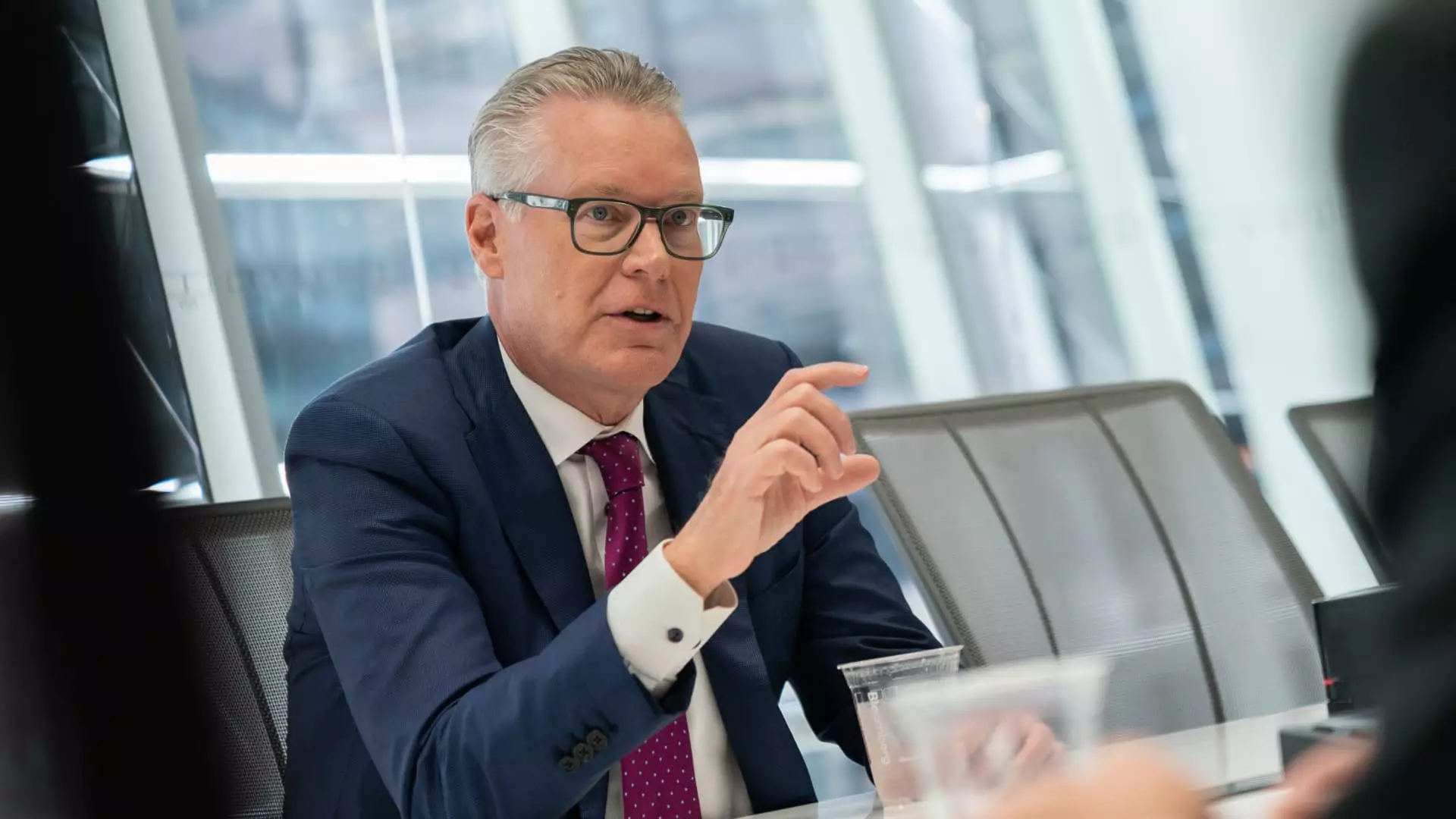In a shifting regulatory landscape, the airline industry is bracing for changes under the incoming administration. Delta Air Lines CEO Ed Bastian recently characterized the Trump administration’s regulatory approach as potentially refreshing, reflecting a desire in the industry for a regulatory environment that reassesses existing policies and standards. As leaders within the aviation sector seek to regain momentum post-pandemic, the prospect of reforms, particularly in consumer protections and operational regulations, has ignited a conversation among airline executives about the implications of government oversight.
Bastian’s remarks came during a pivotal moment for Delta, coinciding with the company’s investor day events where financial resilience and growth were primary topics. His acknowledgment of a “fresh look” at regulatory frameworks reflects a broader optimism shared by many in the industry about the potential easing of what some perceived as overly stringent regulation in recent years. This perspective is particularly significant considering the heightened scrutiny airlines have faced in terms of consumer rights and operational transparency.
The U.S. Department of Transportation (DOT), led by Secretary Pete Buttigieg, has been proactive in implementing various rules aimed at enhancing consumer protections. This includes measures that require airlines to issue automatic refunds in cases of flight cancellations, an initiative that has faced resistance from several airlines. Bastian described this dynamic as an example of regulatory overreach, signaling that while consumer protection is crucial, it is essential for regulatory interventions to strike a balance with operational realities facing airlines.
Furthermore, discussions surrounding the nature of frequent flyer programs have also emerged, indicating a potential shift in how airlines manage these lucrative memberships. The DOT’s interest in examining how airlines can alter the value of points reflects a keen focus on consumer transparency and fairness. This may lead to significant shifts in how loyalty programs function, prompting airlines like Delta to rethink their strategies in customer retention and revenue generation.
Looking ahead, Delta anticipates growth in both sales and profitability, buoyed by the recovery of consumer demand and an increase in household wealth resulting from pandemic-related economic adjustments. This optimistic outlook is critical, as airlines navigate post-pandemic recovery while simultaneously adapting to new regulations and market conditions. The call for stability and adequate resources by other airline CEOs, such as American Airlines’ Robert Isom and Sun Country Airlines’ Jude Bricker, underscores the need for support and investment in the aviation infrastructure, including modernized air traffic control systems.
As discussions unfold, maintaining a strong investment in the airline infrastructure becomes imperative. CEO Robert Isom pointed out the importance of resource availability for improved operational efficiency and service quality. These sentiments reflect a collective urge within the industry to not only recover but to innovate and enhance services amidst ongoing challenges.
Another area of interest is the regulatory landscape regarding mergers and acquisitions. Industry analysts speculate that the incoming administration may adopt a more lenient stance toward airline consolidations, given recent trends such as Alaska Airlines’ acquisition of Hawaiian Airlines with little opposition from administration officials. In contrast, the current administration has proven more challenging for merger discussions, evidenced by the unsuccessful nobility attempts of JetBlue Airways to acquire Spirit Airlines and the hurdles faced in their partnership with American Airlines.
As outlined by industry leaders, the need for stability and clarity from the DOT during periods of consolidation is vital for encouraging investments and partnerships that can strengthen the industry. Jude Bricker’s comments succinctly capture the zeitgeist of the moment: “We just need stability and resources at the DOT.” This resonates with a wider call for regulatory environments that foster an innovative and competitive aviation market.
The upcoming transition in regulatory leadership prompts a critical reassessment of what lies ahead for the airline industry. A shift towards more favorable regulatory conditions could open doors for growth and innovation, emphasizing the need for balance between consumer rights and operational freedom. As leaders in the sector prepare for potential changes, their focus remains on fostering an environment that prioritizes investments while protecting consumer interests. Ultimately, how the administration navigates these delicate dynamics will play a vital role in shaping the future landscape of air travel in America.

